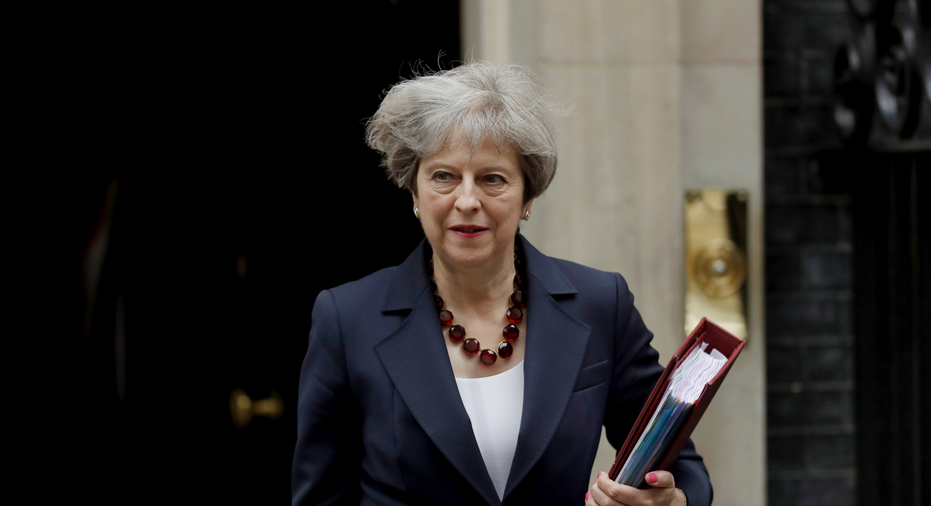The Latest: UK's fragile government survives first vote

LONDON – The Latest on British Prime Minister Theresa May's minority government: (all times local):
7:15 p.m.
Britain's Conservative minority government has passed its first test in Parliament since an election wiped out its majority, with lawmakers rejecting an opposition demand for an end to public-spending cuts.
The House of Commons voted 323 to 309 Wednesday against a call by the main opposition Labour Party for a pay raise for public-sector workers and an end to cuts to police and firefighting budgets.
The vote was the first the government faced in Parliament since the June 8 election. It came after several days of debate on last week's Queen's Speech, which laid out government plans for the next two years.
May's government defeated Labour's proposal thanks to a deal with the 10 lawmakers from Northern Ireland's Democratic Unionist Party, who have agreed to support the Tories on key votes.
___
4:10 p.m.
A victory for Britain's Labour Party on a proposal to raise the pay of public-sector workers could topple Prime Minister Theresa May's new minority government.
Weariness with austerity was a factor driving voters in this month's early general election away from the Conservatives and toward Labour, which to boost spending.
The election left the Conservatives several votes short of a parliamentary majority and severely undermined May's authority.
In a possible sign of compromise, ministers suggested they might ease up on austerity and lift a wage cap that has limited public sector pay increases to as little as 1 percent a year.
Treasury chief Philip Hammond said the Conservatives were "not deaf" to the message delivered by the election.
May called the June 8 snap vote in a misjudged attempt to increase her grip on power.
___
11:45 a.m.
Britain's Conservative minority government is facing its first test in Parliament since the June 8 election, as lawmakers vote on an opposition demand for an end to public spending cuts.
The main opposition Labour Party is calling for a pay raise for public-sector workers and an end to cuts to police and firefighting budgets.
Labour leader Jeremy Corbyn says that, after recent disasters and deadly attacks, "you can't have safety and security on the cheap."
The Conservatives have slashed public spending since 2010 in an attempt to reduce Britain's deficit.
This month's election left the Conservatives several votes short of a parliamentary majority, and defeat Wednesday could topple Prime Minister Theresa May's government.
But it is likely to survive thanks to a support deal with Northern Ireland's Democratic Unionist Party.



















